Keynote Lectures
The keynote speakers of the conference are listed below.
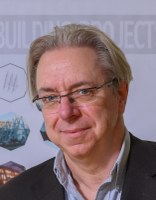
Thomas Keller
EPFL, Switzerland
Thomas Keller is professor emeritus and honorary professor at the Swiss Federal Institute of Technology Lausanne (EPFL), Switzerland. His work in research and design focuses on the application of composites in structural engineering and architecture. Research fields are material-tailored design, multifunctional use, adhesive joints, fatigue, fracture, and fire performance of composites.
1992 PhD, ETH Zurich
1996 Assistant professor, ETH Zurich, Department of Architecture
1998 Associate professor of structural engineering, EPFL
2000 Foundation of Composite Construction Laboratory, CCLab
2007 Full professor of structural engineering, EPFL
2024 Professor emeritus and honorary professor, EPFL
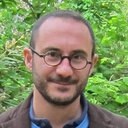
Michele D'Ottavio
Paris Nanterre, France
Michele D’Ottavio is associate professor at Université Paris Nanterre, France. His main research topics are modeling of composite laminated and sandwich plates/shells, including multiphysics coupling such as thermomechanics and piezoelectricity, as well as the development of appropriate numerical simulation tools, in particular based on the finite element method.
1994-2000: Aerospace engineer degree, Politecnico di Torino, Italy
2000-2007: Research assistant and PhD (Dr.-Ing.), Institute for Statics and Dynamics of Aerospace Structures, Universität Stuttgart, Germany
2007-2008: Post-Doc, Laboratoire de Mécanique de Paris X, France
Since 2008: Associate Professor, Université Paris Nanterre (UPN), France
Member of Laboratoire Energétique Mécanique Electromagnétisme (LEME), UPN
2022: Habilitation, UPN

Hom Nath Dhakal
University of Portsmouth
Dr Hom Nath Dhakal is a Full Professor of Mechanical Engineering at the University of Portsmouth, England, UK. He leads as the Director of the Portsmouth Centre for Advanced Materials and Manufacturing (PCAMM) within the School of Electrical and Mechanical Engineering at the University of Portsmouth (UoP). He is a Docent (Visiting) Professor of Biobased Composite Materials at the Faculty of Textiles, Engineering and Business, University of Borås, Sweden. Prof. Dhakal is also an Honorary Chair of Sustainable Biomaterials, Madan Bhandari University of Science and Technology, Nepal.
His research interests and expertise include the development, testing and characterisation of sustainable bio-based lightweight composites and hybrid composites for advanced engineering applications, including the automotive, marine, aerospace, building and construction industries. His research covers environmental sustainability, circularity and life cycle thinking, hence contributing toward accomplishing the UN’s Sustainable Development Goals through purposeful research.
His publication track record includes over 150 peer reviewed journal articles, 3 books, 16 book chapters and over 90 conference papers/proceedings. He has 11,159 citations with an h-index of 54, i10-Index of 130 (as of 19/01/2026 Google Scholar). His ResearchGate research interest score is over 5,634, higher than 99% of ResearchGate members. He is listed in world’s top 2% scientists by Stanford University and Elsevier ranking in 2020 and 2023 and 2025.
Professor Dhakal is an Associate Editor of Composites Part C: Open Access journal, Elsevier. He is a Chartered Engineer, a member of the American Society for Composites and a Fellow of the Higher Education Academy, the Institution of Engineering and Technology (FIET) and the Institute of Materials, Minerals, and Mining (IOM3) (FIMMM).

Licheng Guo
Harbin Institute of Technology, China
Licheng Guo is one professor at Harbin Institute of Technology in China and Head of the Department of Astronautic Science and Mechanics. He is mainly engaged in the research of failure mechanics of composite materials and structures and fracture mechanics of nonhomogeneous materials.
Experience:
- 1994-1998, Harbin Institute of Technology (HIT), BSc in Internal Combustion Engine
- 1998-2000, HIT, MSc in Material Science
- 2000-2004, HIT, PhD in Engineering Mechanics
- 2005, Associate professor, at School of Astronautics, HIT
- 2006-2008, JSPS postdoctoral research fellow, Department of Mechanical Engineering, Shizuoka University, Japan
- 2008-present, professor, Department of Astronautic Science and Mechanics, HIT
- Since 2020, Head of Department of Astronautic Science and Mechanics, HIT
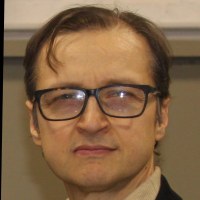
Claudio Mingazzini
ENEA, Italy
Claudio Mingazzini is a chemist and a researcher at ENEA Faenza, Sustainability Department (ENEA-SSPT-TIMAS-MCC), working on advanced and sustainable composite materials, manufacturing processes, and related circular design approaches. He coordinated a number of project regarding weight reduction and structural optimisation using fiber reinforced composite materials, for lightweight, fire-safety and more sustainable industrial applications. His activities also include technology transfer and innovation pathways for composites across multiple sectors with a strong focus on end-of-life strategies, recycling and resource efficiency. His interest is mainly focused on mass productions, aiming at sustainable development, carbon neutrality and reduced critical raw materials use. Regarding composites recycling, his works deal both with downgrade to secondary raw materials and closed loop recycling for the original application.
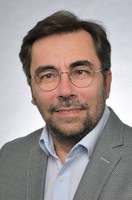
Konstantin Naumenko
University of Magdeburg, Germany
1983-1989 Academic education, Kharkiv Polytechnic Institute, Ukraine
1993-1996 Graduate school and PhD (Dr.-Ing.) at Otto-von-Guericke-University Magdeburg, Germany
1996 -2011 Research Fellow, Martin-Luther-University Halle-Wittenberg, Germany
2006 Habilitation at Martin-Luther-University Halle-Wittenberg, Germany
2011 Professorship (apl. Professor) at Martin-Luther-University Halle-Wittenberg, Germany
2012 Professorship (apl. Professor) at Otto-von-Guericke-University Magdeburg, Germany
since 2022 Head of research area Engineering Mechanics at Otto-von-Guericke-University Magdeburg, Germany
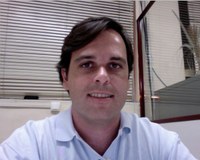
Joao Reis
UFF, Brazil
Prof. João Marciano Laredo dos Reis is Associate Professor at the Mechanical Engineering Department at the Universidade Federal Fluminense in Rio de Janeiro, Brazil and obtained his PhD in 2003 at the University of Porto, Portugal. He is researcher A from Brazilian National Council for Scientific and Technological Development (CNPq). Prof. João Reis published more than 250 scientific peer-reviewed and conference papers in the polymer composites subject. He supervised 60 Master Dissertations and 20 PhD Thesis. He coordinated many projects related to the oil and gas industry sponsored by PETROBRAS (Petroleo Brasileiro SA) and other oil and gas related companies starting in 2005. The principal area related to his research is structural integrity and rehabilitation of onshore and offshore pipelines with composite materials.
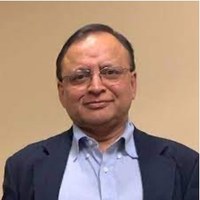
Samit Roy
The University of Alabama
Dr. Samit Roy received his Ph.D. in Engineering Science & Mechanics from Virginia Tech in Blacksburg, Virginia. He is currently the William D. Jordan Endowed Professor in the Department of Aerospace Engineering and Mechanics at University of Alabama (UA). Dr. Roy's research interest is directed towards multi-scale modeling and life-prediction of fiber reinforced polymer composites and structural adhesives subjected to aggressive environmental conditions. He is also actively involved in the application of nanostructured reinforcements in enhancing performance of composite materials. He has developed structural health management concepts that include sensor placement optimization for structural weight and cost reduction, as well as smart materials for non-autonomous self-healing. He has authored over 200 peer-reviewed journal articles and book chapters. He was elected Associate Fellow of the American Institute of Aeronautics and Astronautics (AIAA) in 2004, elected Fellow of ASME in 2010, and Fellow of American Society for Composites (ASC) in 2022. He was elected Chairman of the ASME NanoEngineering for Energy and Sustainability(NEES) steering committee in 2014, and Division Chair, Emerging Composite Technologies Technical Division, of theAmerican Society for Composites in 2022. He is the recipient of the ASC Outstanding Researcher Award in Composites in 2019 and ASC/DesTech Award in Composites in 2023.
